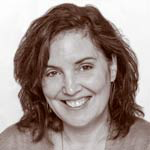 In the era of ever-more nuanced digital marketing, Jonah Berger still believes in word of mouth. In 2013, Berger — a professor at Wharton School at the University of Pennsylvania — even penned a bestselling book on the subject, Contagious: Why Things Catch On. At the upcoming Convening Leaders 2016 in Vancouver, Berger’s general session talk, “Crafting Contagious Ideas,” will examine how old-fashioned social dynamics help drive the decision to attend. Convene caught up with Berger for a sneak peek of what he’ll talk about in January — as well as discover what drives his attendance at meetings.
In the era of ever-more nuanced digital marketing, Jonah Berger still believes in word of mouth. In 2013, Berger — a professor at Wharton School at the University of Pennsylvania — even penned a bestselling book on the subject, Contagious: Why Things Catch On. At the upcoming Convening Leaders 2016 in Vancouver, Berger’s general session talk, “Crafting Contagious Ideas,” will examine how old-fashioned social dynamics help drive the decision to attend. Convene caught up with Berger for a sneak peek of what he’ll talk about in January — as well as discover what drives his attendance at meetings.
What message will you deliver at Convening Leaders 2016?
I’ll talk about how we can get our meetings and our cities to catch on and become more popular, and how, by understanding the science of word of mouth and social influence, we can get people even more interested what we have to offer, whether it’s a meeting or a city or something else. How can we take advantage of some of the dimensions that offline engagement, like a conference or meeting, provide, and make them more valuable to our members?
How can we take advantage of some of the dimensions that offline engagement, like a conference or meeting, provide, and make them more valuable to our members?
What’s a technique that event marketers might not fully utilize to drive attendance?
Event marketers might not think about the power of word of mouth, and the power of social influence. By word of mouth, I don’t mean social media — I mean one person talking to another person, whether it is online or offline. By understanding the science of word of mouth, of why people talk and share, I’m going to give them a toolkit to use that science to get their meetings and locations to catch on.
How might a meeting planner turn a longtime attendee into an advocate?
I think that the challenge is, many times people say, “I’m going to this meeting, but this meeting isn’t part of who I am, there’s no incentive for me to talk about it.” I think the key is [for planners] to say, “Why is someone coming, and how can we make them feel part of something that’s bigger than themselves?” How can we make people feel more a part of the way these things are designed? We’re all advocates of things we feel a part of. If they’re part of how it turns out, and that will make them much more likely to talk and share.
How do you think that’s accomplished — making them feel more of ‘a part of it’?
Take something simple as an example that’s not related to meetings: Why people like YouTube. Part of why people like YouTube is that everybody gets to leave their comments and opinions. Unlike a television show, where you’re just passively watching, with YouTube you get to say something back, you can give your own opinion. [That can translate to] thinking about mechanisms that allow people to vote, thinking about which session they’d like to see featured on the main stage, thinking about changes they’d like for next year. Make [your meeting] something that people think they’re a part of — that their voices are likely to be heard.
Are there any meetings you go to every year that you never miss?
Yeah, actually a couple of meetings. I go to the Association for Consumer Research, which is a big consumer psychology conference. Sometimes I go to the Society for Personality and Social Psychology, a psychology conference.
What draws you back, year after year?
Part of it’s the information, part of it is seeing what’s going on in the field. A lot of it is seeing other people — the social engagement, the getting together with old friends, the possibility to meet a bunch of people in one place rather than the difficulty of seeing them all where they live. I think about the social aspects of these events — not just the information aspects, but also the social aspects.
For more, read Michelle Russell’s 2013 interview with Berger here.




